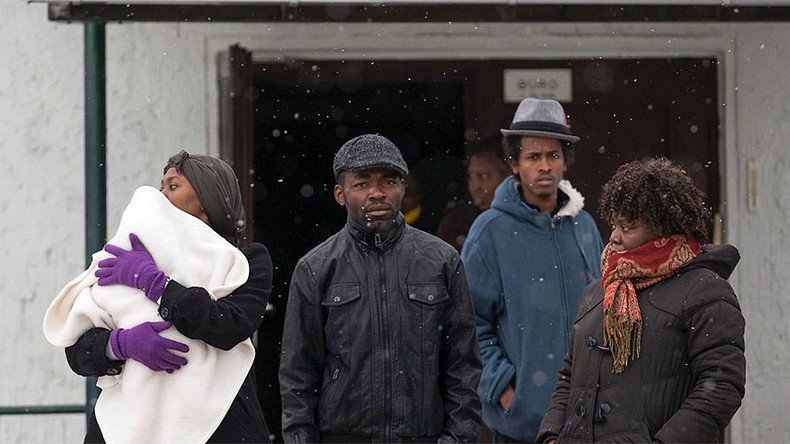Racial profiling against Africans ‘endemic’ in Germany – UN experts

People of African descent face racial discrimination, constant racial profiling, and other kinds of intolerance in Germany, a UN working group said in a statement, adding that their struggle remains largely “invisible” to the wider community.
“Although the [German] constitution guarantees equality, bans racial discrimination and enshrines the inviolability of human dignity, these principles are not put into practice,” the statement released by the Office of the UN High Commissioner for Human Rights said, following the group’s seven-day visit to Germany.
The group visited Berlin, Dessau, Dresden, Frankfurt, Wiesbaden, Düsseldorf, Cologne, and Hamburg from 20 to 27 February in order to collect first-hand information on the difficulties racial minorities face in Germany.
An alarming practice of racial profiling when police stop and search is widespread in Germany, the statement continues.
“The repeated denial that racial profiling does not exist in Germany by police authorities and the lack of an independent complaint mechanism at federal and state level fosters impunity.
“The Working Group found that racial profiling by police officials is endemic. Stop and search and controls by police are usually targeted at minority groups including people of African descent. Boys and young men experience day-to-day confrontation with law enforcement with high risk of imprisonment,” the statement said.
The group reported on violations taking place during investigations of “cases of racial discrimination and violence against people of African descent by the state, in particular by the police.”
According to the data, in 2005, an African asylum-seeker died in custody in the city of Dessau. This may have been caused by poor treatment and the use of physical force by the police, triggered by racial bias. Other examples include the death of an asylum-seeker in police custody in 2012, police shooting at an African woman at a job center in Frankfurt am Main in 2011, and the fatal stabbing of a North African woman in Dresden’s high court in front of her 3-year-old son and a judge.
People of African descent are also frequently targeted by far-right extremists, the statement added.
Germany suffers from a “serious lack of race-based data and research that could inform policy to improve the situation of people of African descent,” the UN experts noted.
The Working Group has called on Germany to come up with a national action plan to bring the situation under control. The possible measures suggested by the UN are to “undertake impact-oriented activities,”“fund African organizations working for people of African descent,” “legally recognize people of African descent in Germany as a minority group,” “increase the representation of people of African descent in law enforcement,” and others.
The roots of racism in Europe, particularly in Germany, can be traced back even before World War II, and should be taken into account as well.
“Germany’s colonial past, the genocide of the Ovaherero and Nama peoples, and the sterilization, incarceration, and murder of Black people during Nazi Germany, is not adequately addressed in the national narrative,” the experts said.
However, the German government has not yet addressed the issue nor discussed reparations with representatives of the minority groups.
The group, however, welcomed the readiness showed by the German government “to engage in dialogue, cooperation and action to combat racial discrimination” and expressed hope that their recommendations will be taken into account.
In Germany, the UN experts worked in cooperation with the German Federal and State authorities and local human rights groups.
The report, with the findings and final recommendations, will be presented to the UN Human Rights Council in September 2017.
In December 2016, the group issued a similar report on the problems of racial discrimination faced by people of African descent living in the US, where racial crimes were predominantly linked to the “legacy of colonial history, enslavement, racial subordination and segregation.”













